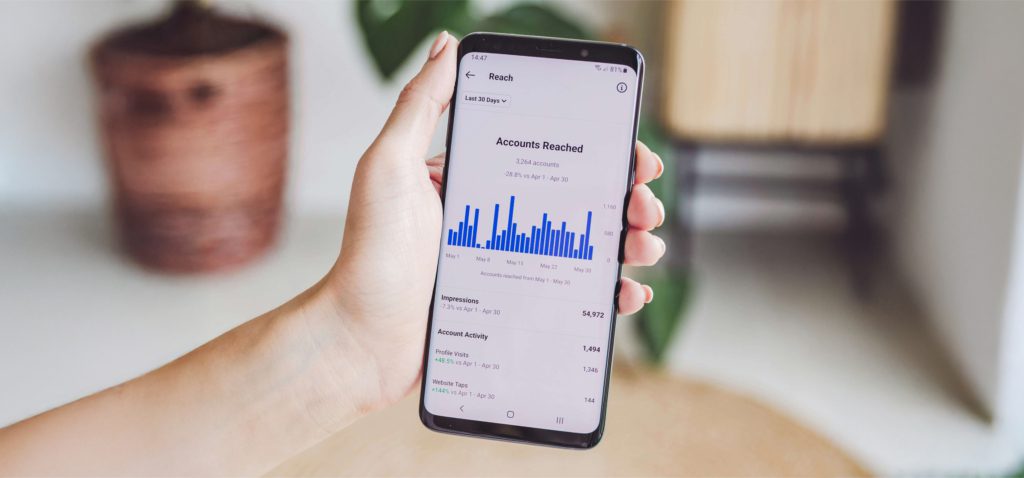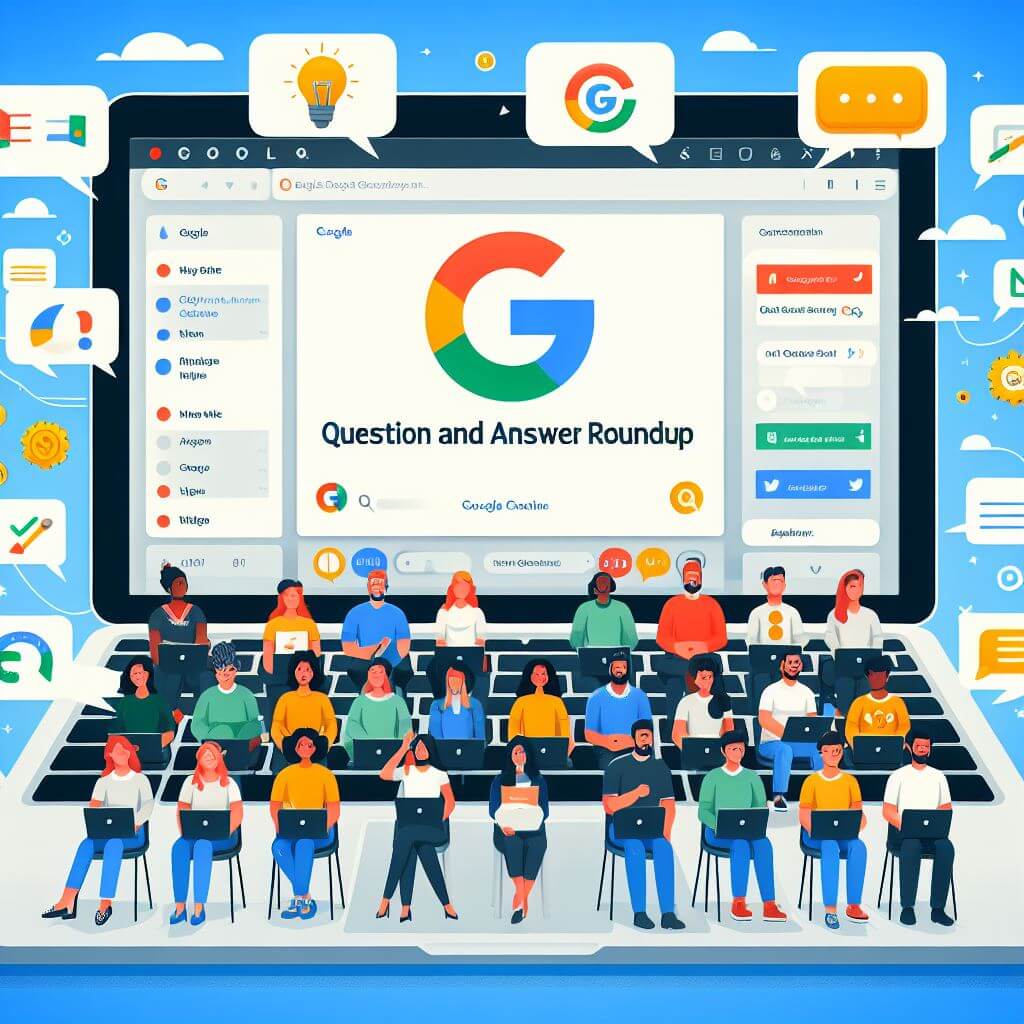Google is renowned for keeping the world of SEO on its toes with regular core updates and algorithm changes, but it is their latest rollout which has got everyone talking.
AI Overviews are the biggest change to the SERPs in decades, and for sites to stay relevant in the new era of search, SEOs need to act now.
It is estimated that there are approximately 8.5 billion searches on Google per day.
The majority of searches on Google fall into the informational category, accounting for 80% of all queries.
That’s a lot of organic search traffic to harness – but when Google revealed at its IO in May 2024 that AI Overviews would be rolling out, many brands were left dismayed.
This is because top-level informational queries were apparently set to be replaced by answers provided directly on the results page, powered by Google’s version of ChatGPT.
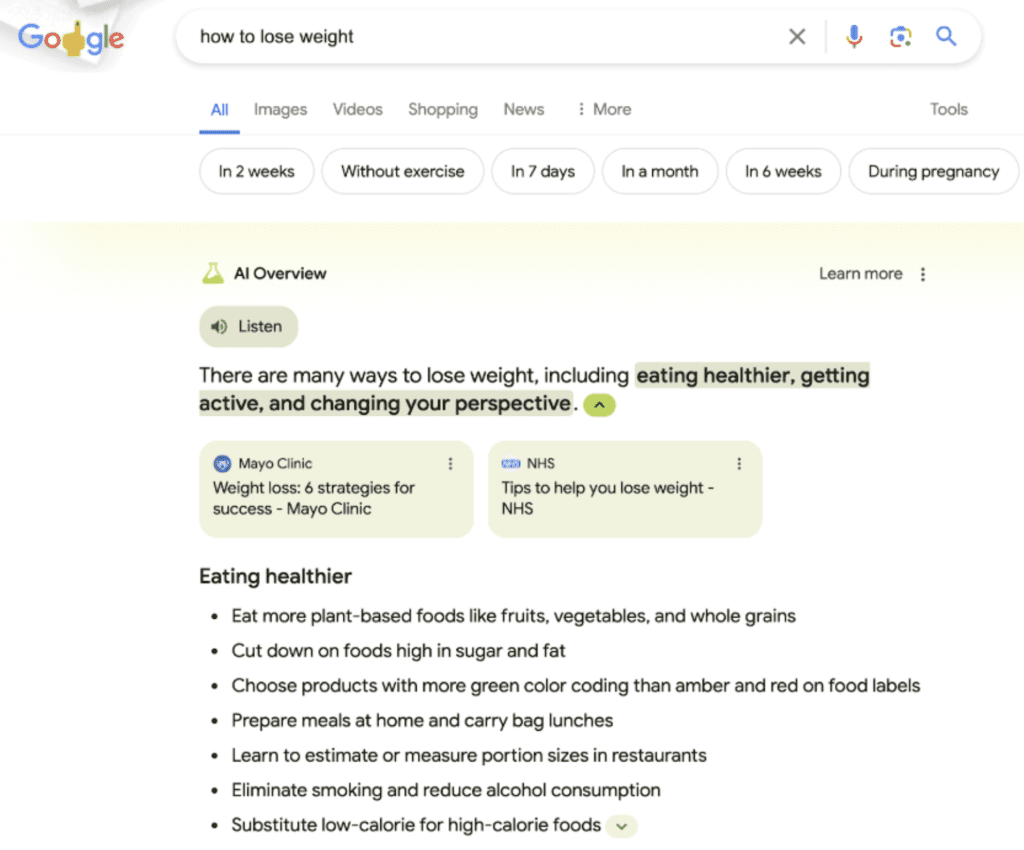
So how can businesses navigate this change and ensure they don’t experience a drop in organic revenue?
As mentioned in our webinar – Google AI: Rethinking Your Ranking Tactics – we recommend two methods to circumvent this update.
- Rank as an AI citation
- Optimise for non-AI queries
Let’s take a closer look at each of these methods…
Rank as an AI citation
Our clients have been asking us how they can rank as an AI citation. This seems to be the natural next step for SEOs keeping pace with Google’s AI upgrades.
For those not in the know, Google is citing the sources it uses for its AI responses on the results page. As these citations appear before organic results, they have arguably become ‘the new position one’.
So, the question is – how can sites appear as citations? We can reverse-engineer the process, so here’s an example for a query where Evans Cycles appears as a citation.
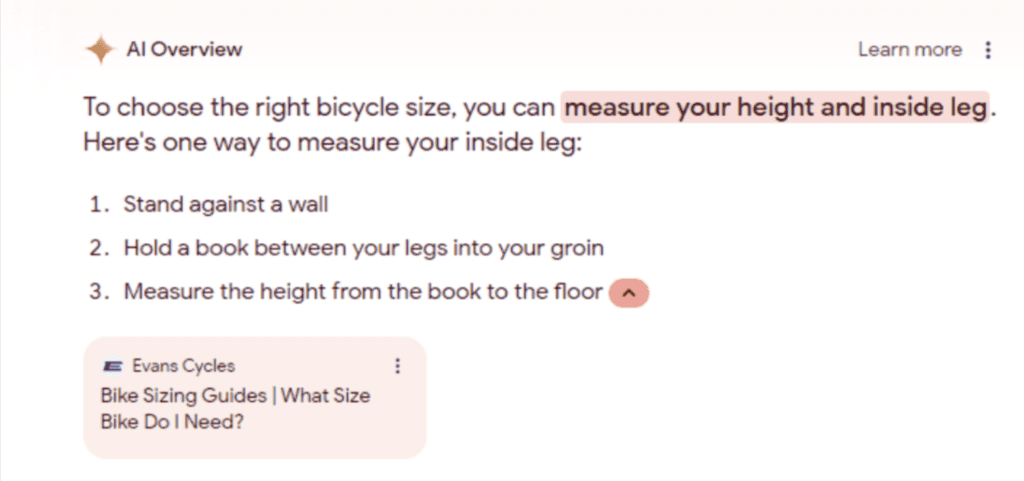
Site architecture
Evans Cycles has a strong and clear site architecture in place. There are multiple types of bike sizing guides available, and this information has been displayed clearly at the top of the page.
· It’s clear for users, which helps with user experience ranking signals
· It’s easy for index crawlers, so it knows which pages to index for specific search queries

Readability
As you scroll down the page, the text has been broken up with SEO optimised headlines.
Sentences are kept short without jargon-heavy language, contributing to a good readability score.
The Flesch reading ease score is 80.4 for this page, placing it at a 6th grade reading level.
Video SEO
At the bottom of the page, an embedded YouTube video supplements the content.
This provides a clear roadmap for index crawlers seeking authoritative sources of information on this topic.
Not only can they process the text on the website, but the video adds additional weight to the brand’s mastery of the subject matter.
When you’re adding schema markup to your videos, make sure you use the following:
· VideoObject schema – ensures the video appears in rich results. Include name, thumbnailUrl and uploadDate as a minimum
· Clip properties – highlights key moments in the video. Google displays timestamps and labels accordingly
Optimise for non-AI queries
Google considers its AI Overviews to be the starting point for the user journey, allowing them to view a series of comprehensive pieces of information at once.
This latest development turns what previously would have required multiple searches and trawling through various websites, into an innovative and useful experience.
In addition, the search engine states that accuracy is paramount in search and that the overviews will only display information that is supported by the top web results.
This highlights how vague and basic summaries are highly unlikely to appear as citations.
So, what can SEOs do to navigate this situation? In short, the answer is optimising for non-AI queries, which are likely to be highly specific and long-tail in nature.
The benefit of using long-tail keywords is that they are more specific and have less competition than short-tail keywords.
In addition, they attract a more targeted audience who are searching for actionable advice, indicating their engagement and willingness to proceed down the funnel, resulting in more likely conversions.
That being said, it’s important to pick the right types of queries – and knowing where the gaps are is not currently an easy task. However, here are some initial pointers…
Choosing the right queries
Forum results
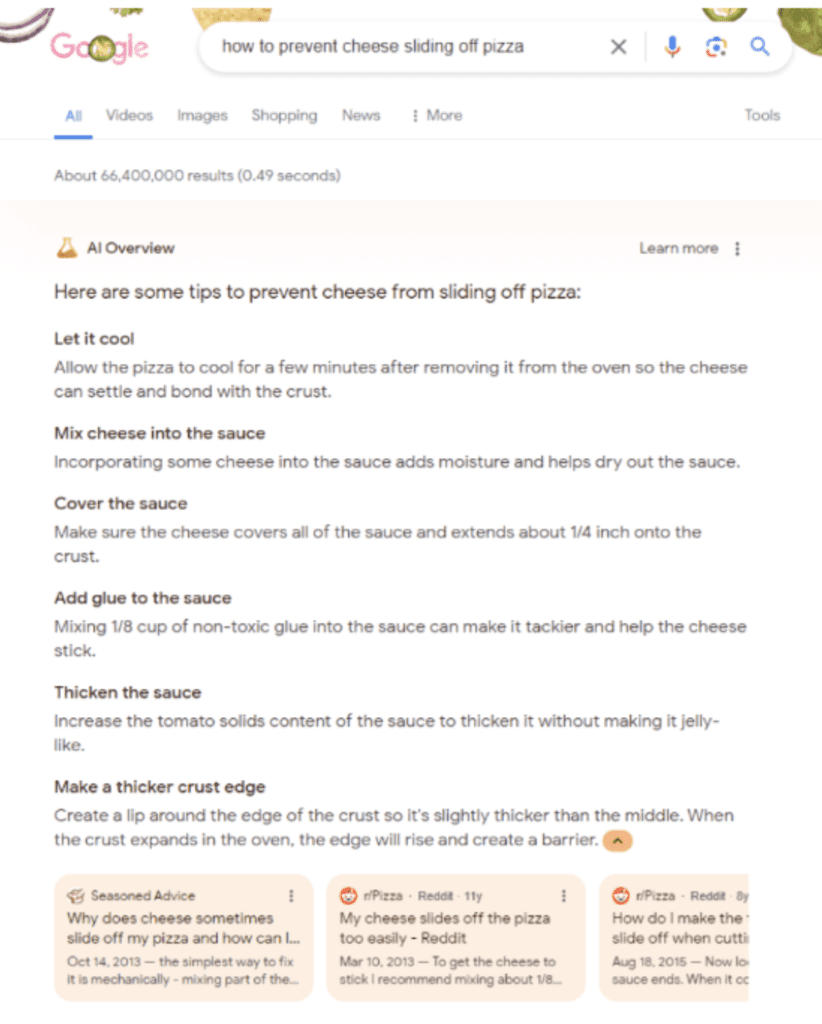
As detailed in our webinar, Google trialled using forum content from sites such as Reddit in its AI Overviews.
However, they have since pulled back this feature after dubious results and user backlash.
That’s not the end of the story, though – Google has invested heavily in its partnership with Reddit to train its LLM, and so we should assume a more sophisticated usage of forum content will roll out in the coming months.
Why are we mentioning this? A portion of long-tail queries are likely to be served by forum responses, as the best answers will come from direct, original user experiences.
It’s worth assessing which of the long-tail queries you’d like to rank for, may appear in forum results – and adapting your approach accordingly.
Local results
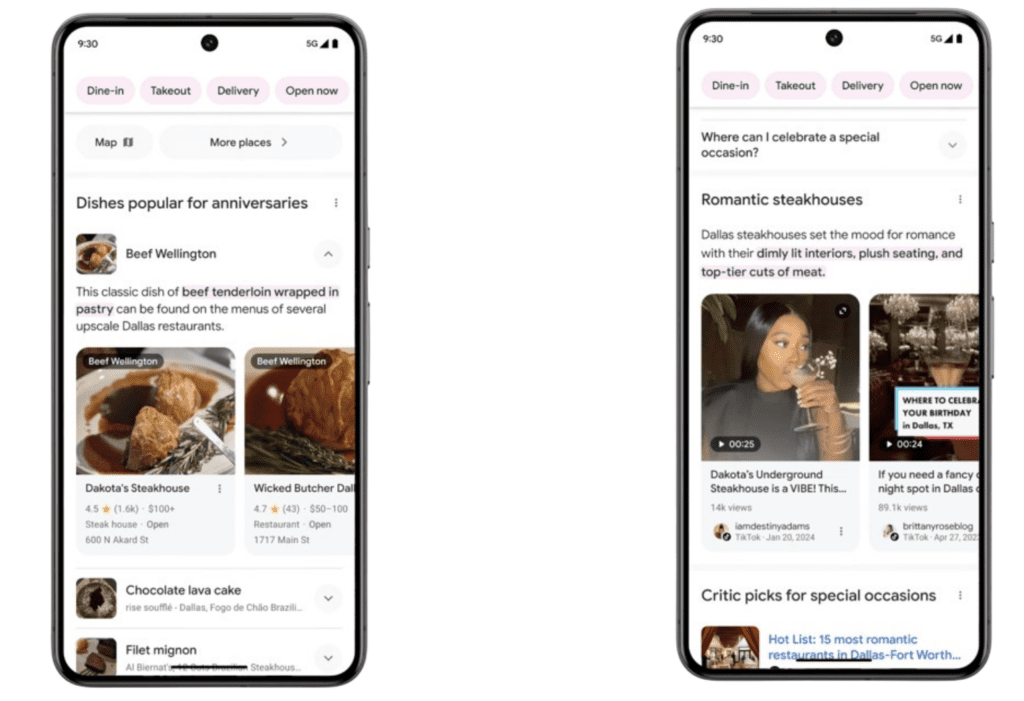
We discussed how Google is continuing to work on the more advanced aspects of its AI Overviews, so that people can input long-tail queries around meal planning, travelling and other searches that involve planning for a specific activity.
This means local businesses – for example, a cocktail bar in East London – should assume that optimising as an AI citation is a better strategy than trying to match queries further down the funnel – such as ‘best cheap cocktail bars in East London for date night’
Sharing more information
We’ll be sharing more information on optimising for further down the AI Overviews funnel as information is released.
So be sure to sign up for our newsletter and you’ll be the first to know the latest.
Sources:
https://www.semrush.com/blog/google-search-statistics/
https://www.researchgate.net/publication/222824696_Determining_the_Informational_Navigational_and_Transactional_Intent_of_Web_Queries
https://www.gov.uk/government/publications/2011-skills-for-life-survey
https://www.evanscycles.com/help/bike-sizing
https://www.semrush.com/blog/video-schema/
https://blog.google/products/search/generative-ai-google-search-may-2024/
https://www.w3.org/TR/WCAG21/
https://blog.google/inside-google/company-announcements/expanded-reddit-partnership/


